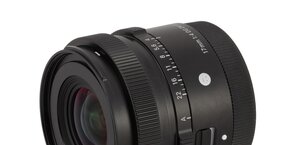Sigma 150-500 mm f/5.0-6.3 APO DG OS HSM
4. Image resolution

At the shortest focal length the results are maybe not outstanding but certainly very good, even wide open. In the 250 –370 mm range the resolution is a bit lower but it remains good nevertheless and, what’s more important, it reaches above 30 lpmm at maximum aperture, so it never falls below the conventional limit not to be crossed on a good instrument. Some reservations can be had about the 500 mm focal length but it’s the fate of all slow zoom lenses. One important fact is worth noticing here. The lenses get rid of the aberrations, limiting their performance on stopping down about 2-3 stops. At 500 mm, in the case of the Sigma 150 – 500 mm, the maximum aperture is f/6.3. To free it from most of the aberrations you will need it use the aperture of about f/13-16. At that point, though, the diffraction becomes a serious limitation on the lens’s achievements and that’s why the MTF values couldn’t reach much above the 30 lpmm level.
Please Support UsIf you enjoy our reviews and articles, and you want us to continue our work please, support our website by donating through PayPal. The funds are going to be used for paying our editorial team, renting servers, and equipping our testing studio; only that way we will be able to continue providing you interesting content for free. |
- - - - - - - - - - - - - - - - - - - - - - - - - - - - - - - - - - - - - - - - - - - - - - - -

The quality dispersion field on the frame edge seems to be bigger than in the center. The lens fares exceedingly well at 150 mm; at 250 mm it’s performance is average, then, unfortunately, it decreases further. The performance at the maximum relative aperture is especially weak, at the longest focal lengths crossing just 20 lpmm level. This behaviour is also very similar to the results of the Sigma 120 – 400 mm.







